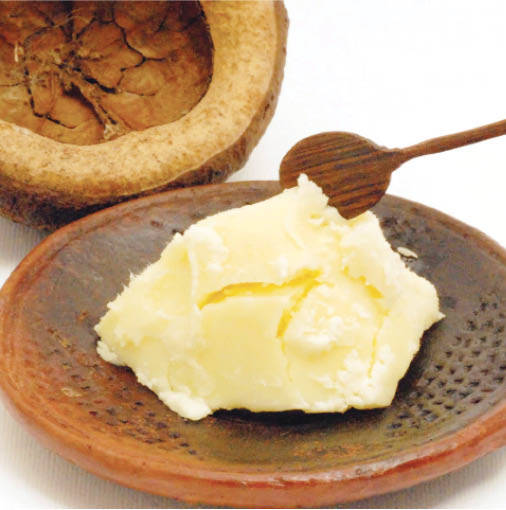Shea: Nigeria owns 57% global shares as women dominate market
The Nigerian Shea market contributes about 57 per cent to the world Shea nut production and is mostly driven by women and youth, Daily Trust reports. The Minister of State for Industry, Trade and Investment, Hajiya Aisha Abubakar in Abuja on Tuesday said the global Shea market for chocolate and cosmetics industry is valued approximately […]


The Nigerian Shea market contributes about 57 per cent to the world Shea nut production and is mostly driven by women and youth, Daily Trust reports.
The Minister of State for Industry, Trade and Investment, Hajiya Aisha Abubakar in Abuja on Tuesday said the global Shea market for chocolate and cosmetics industry is valued approximately at $449 billion (N161.89trn) of which Nigeria is a huge contributor.
She said this while announcing the 2018 Global Shea Alliance (GSA) conference in Abuja in March to be hosted by Nigeria.
In the breakdown, she said global Shea market value for chocolates and confectionary was approximately $117bn while that of the cosmetics industry is N$382bn. She said the conference holding from March 12 to March 14 will help Nigeria develop strategies on how to develop the Shea value chains to create jobs and reduce poverty.
“Nigeria’s hosting of the conference will greatly open our nation’s doors for business linkages between Nigeria’s Shea industry stakeholders with international buyers,” Aisha said.
She also disclosed that Nigeria would host the 16th annual International African Cotton Congress in Abuja to promote mechanised cotton farming. She decried the decried the continued decline in cotton production in Nigeria, adding that the conference will assist in finding solutions to the challenges of cotton value chains in Nigeria.
The minister said the conference on Shea is intended to reduce trade barriers and also achieve sustainability.
“With the current administration’s focus on agriculture, Nigeria stands to benefits immensely from Shea industry through the employment generation for women and youth, poverty eradication, wealth creation and attract foreign exchange earnings across the value chain,” she said.
The minister highlighted the significance of the Shea market to Nigeria’s economy saying it is one way to improve rural economies of communities and that it can be improved to promote Shea butter as food and cosmetic product.
The Oil Seeds Association of Nigeria (OSAN) said Shea trees grow wildly and can be found across 21 states in Nigeria. It is estimated that Nigeria accounts for over 370,000 metric tonnes, a Central Bank of Nigeria (CBN) said.
It has the potential to eradicate poverty and that it has the potentials to engage our mothers and also provides richness to our teeming youth.
“The increase in the country’s Shea butter production could empower more women to contribute to the well-being of the families and those of their local communities in West Africa and particularly, Nigeria,” Aisha said.
Conducting a survey of traders in Shea products, our reporters found that women mostly engage in the sales of the product across Abuja, Kaduna, Nasarawa and other states in northern Nigeria.
Mrs Mairo Aliyu who sells Shea butter in Masaka, Nasarawa state said the product is a fast seller for families and households. She said it is because the product works as a lubricant, massaging ointment and a great nutrient for hair growth.
She said “People who are involved in accidents and are treating external wounds and swellings are often referred to my place to buy Shea butter. It helps in soothing pains, works as relievers and helps to erase black spots on the body.”
“Hair dressers and body product makers also patronise Shea as they add it to the ingredient they use in making hair creams, body lotions and many other cosmetics. I would say that it is just as valuable as honey,” Mairo said, emphasising on the importance of Shea.
Mrs Rose Akin sells the Shea cream in Nyanya, Abuja. Describing the essence of the cream which she called ‘Ori’, Mrs Akin said many of her customers simply buy the cream and mix it with their hair cream to treat loss of hair.
She also confirmed the efficacy of the cream in soothing and relieving pains. “Ori is very good for massaging and I advise you to get a little and apply it. It is affordable and has no side effect of those who have used it unlike some orthodox drugs,” she said in an attempt to woo our reporter to patronise her.
Faith Ojo, a hairdresser in Kaduna metropolis said she uses the product for treatment of scalp and other hair issues for her customers.
In spite of the popularity of the uses of Shea products, Faith said one cannot quickly pick it over-the-counter in many places.
“You have to either contact the household women who trade in them to supply you. It will be good business if they are well packaged and sold at pharmacies and stores so they can be much more available,” she noted.
For Mrs Akin, she called on the government to make deliberate policies to would help women that are into the production to expand to a large scale form that could supply the export market.
“Most of us now do it just to earn a living; many of the rural women don’t have the capacity yet for exporting the product or producing soaps from it because it is capital intensive. However, I know some few businesses that combine the sales of Shea with other nuts and kernels,” she noted.
